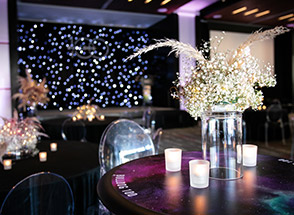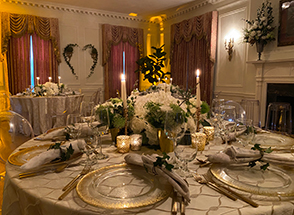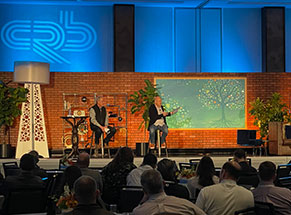WM Events has been so fortunate to be part of an industry that presents numerous opportunities to work with nonprofits serving the community in meaningful ways. When we were asked to produce the intimate fundraiser dinner Shine the Light on Sickle Cell Disease, benefitting Children’s Healthcare of Atlanta and Aflac Cancer & Blood Disorders Center and sponsored by Delta and WM Events, we looked forward to helping raise awareness and support for the vital work these organizations are doing.
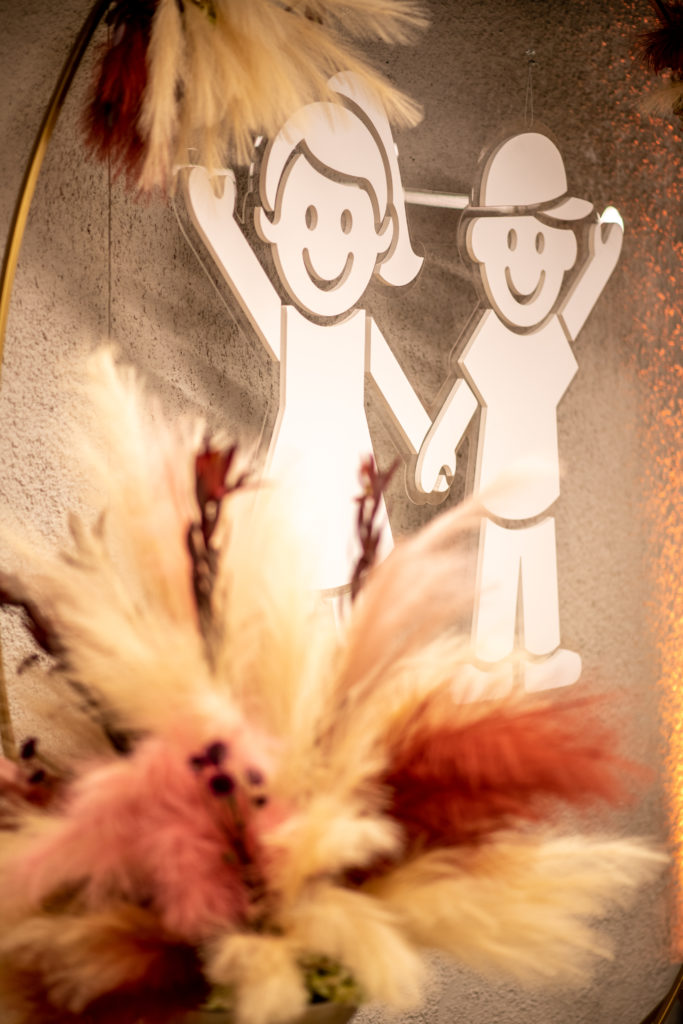
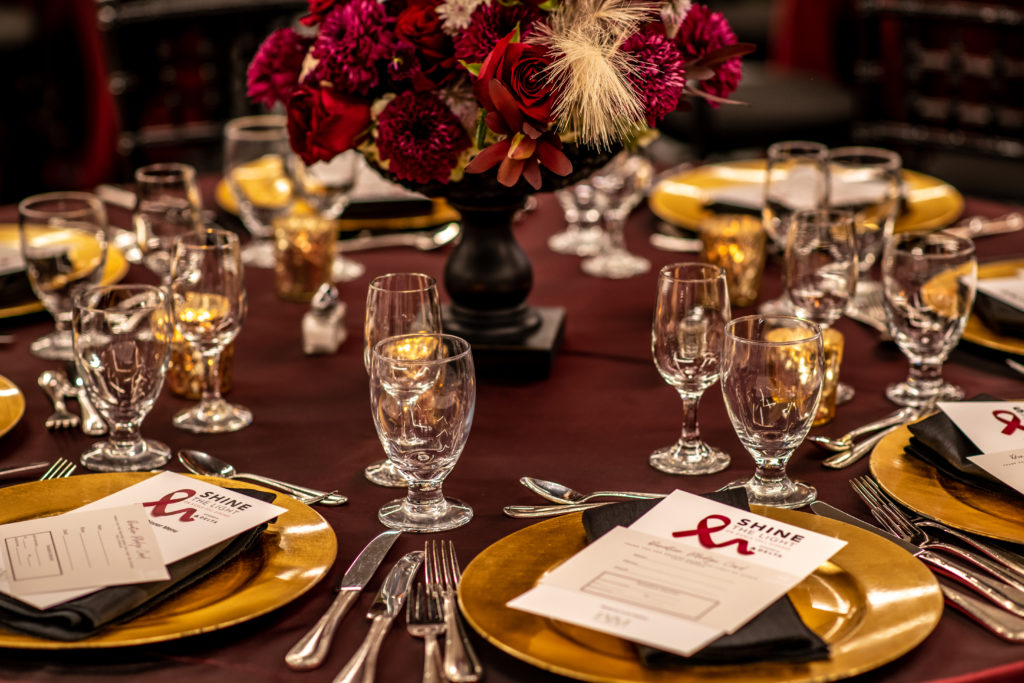
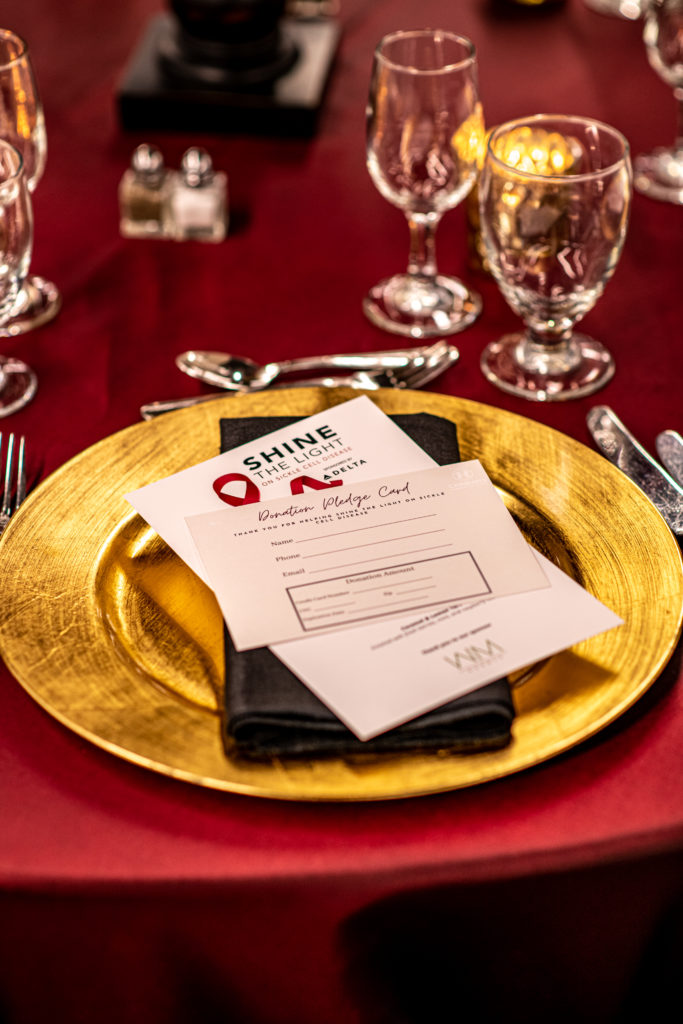
William Fogler has been a board member of Children’s Health Care of Atlanta – Hughes Spalding for many years, and being part of this event felt like a natural extension of his involvement. He has long been passionate about raising awareness for Sickle Cell Disease, and in 2019, William dedicated a family lounge in the Hughes Spalding hospital’s sickle cell transfusions area.
Before getting into the gorgeous design we created or sharing the delightful dinner menu, let’s take a moment to explain a bit more about the disease that was the reason for the evening’s event.
You may have heard of Sickle Cell Disease (SCD), but unless you know someone affected, you might not have a clear understanding of it. This is an inherited blood cell disorder, that causes red blood cells to become C-shaped (like a sickle). These cells also get hard and sticky, so as they move through the body, they sometimes get stuck together, which can clog blood flow. The affected cells also die early, so people with SCD often develop anemia. This disease most commonly affects peoples of African, Mediterranean and Middle Eastern descent.
Currently, the only known cure is a bone marrow transplant, but it can be risky, and it’s not a fit for all patients. Instead, most people with SCD have to implement lifestyle behaviors and be extra careful to avoid infection. But even with strict lifestyle behaviors, SCD can lead to a variety of debilitating symptoms like vision problems, frequent infections, and episodes of extreme pain, as well as life threatening complications, such as organ damage, stroke, or deep vein thrombosis, among others.
You can see why our hearts were all the way in on this event.
To welcome guests to the Shine the Light on Sickle Cell Disease dinner, we placed large pampas grass displays with accents of wine and rose at the entrance. We continued that flirty feature inside where it showed up in tall, slim stands flanking the stage and again surrounding a Will & Hope hoop photo area.
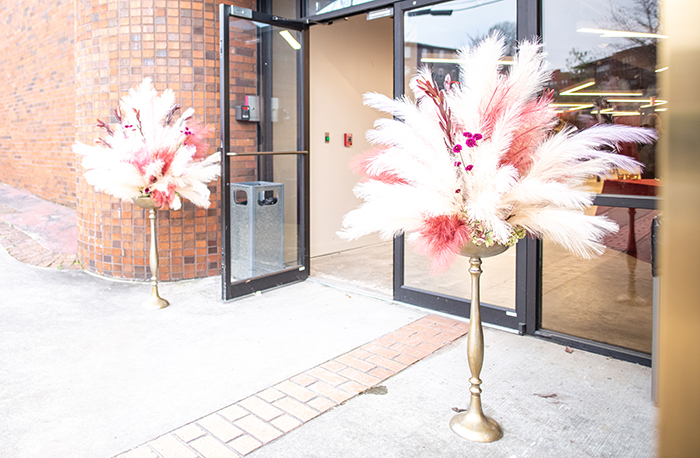
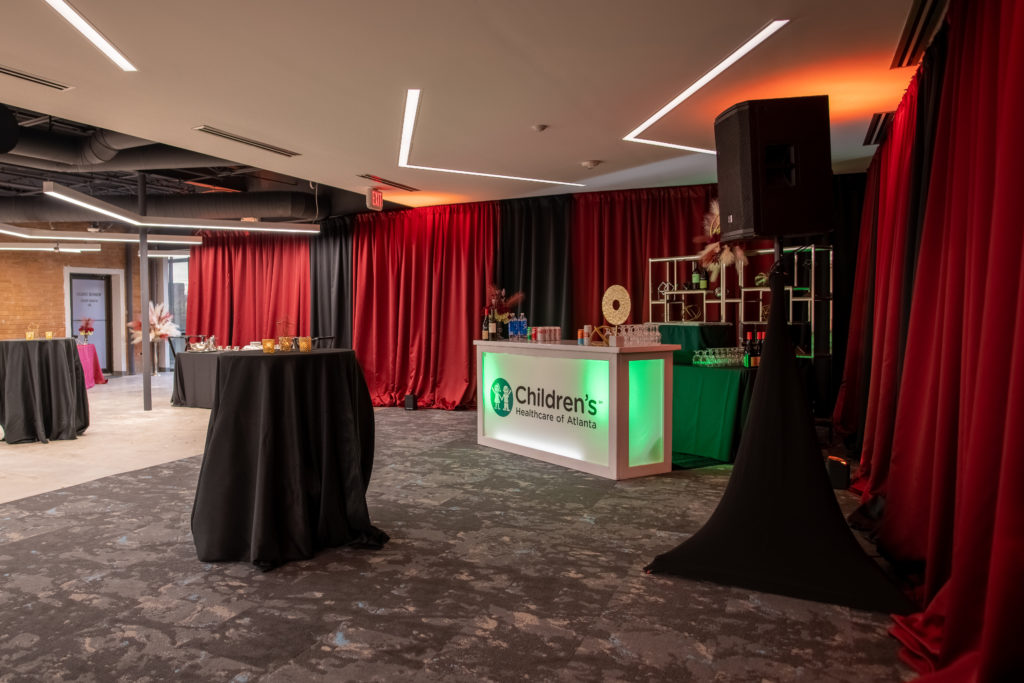
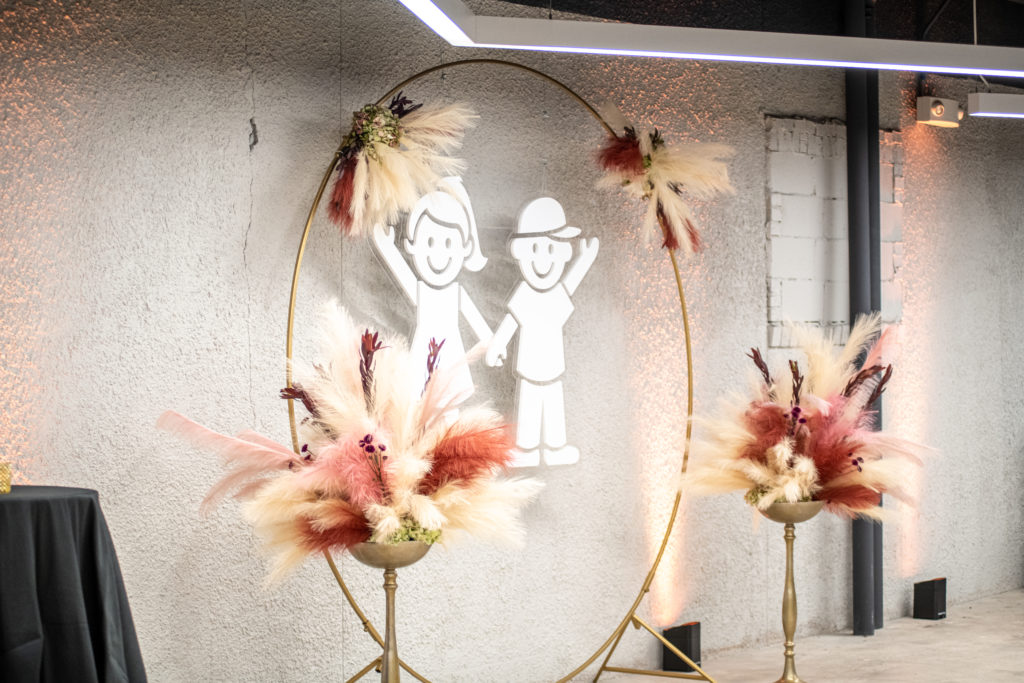
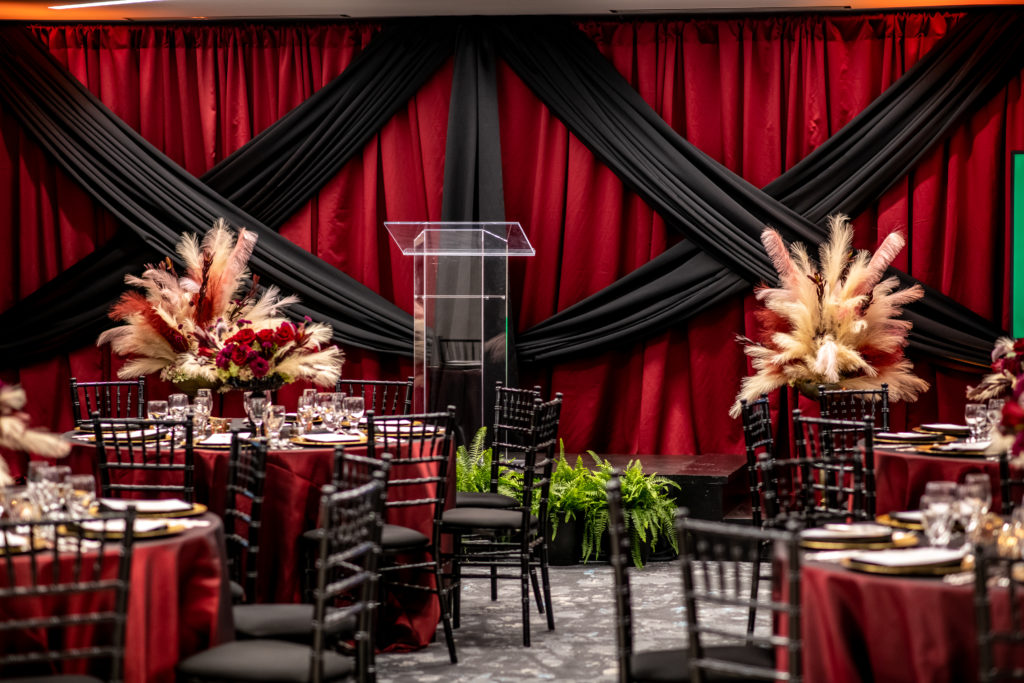
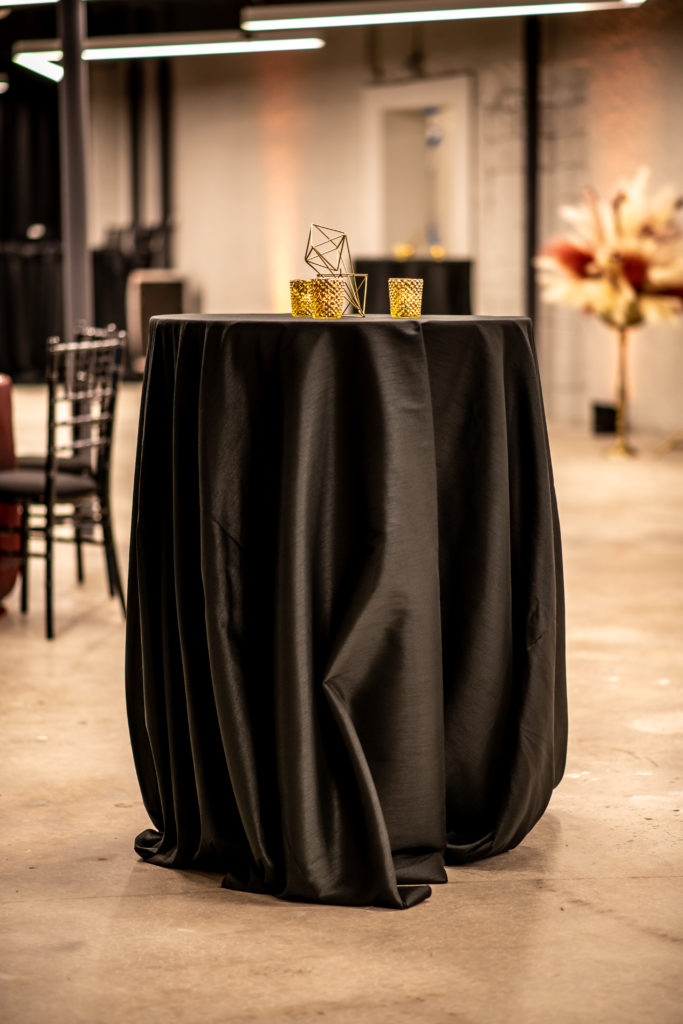
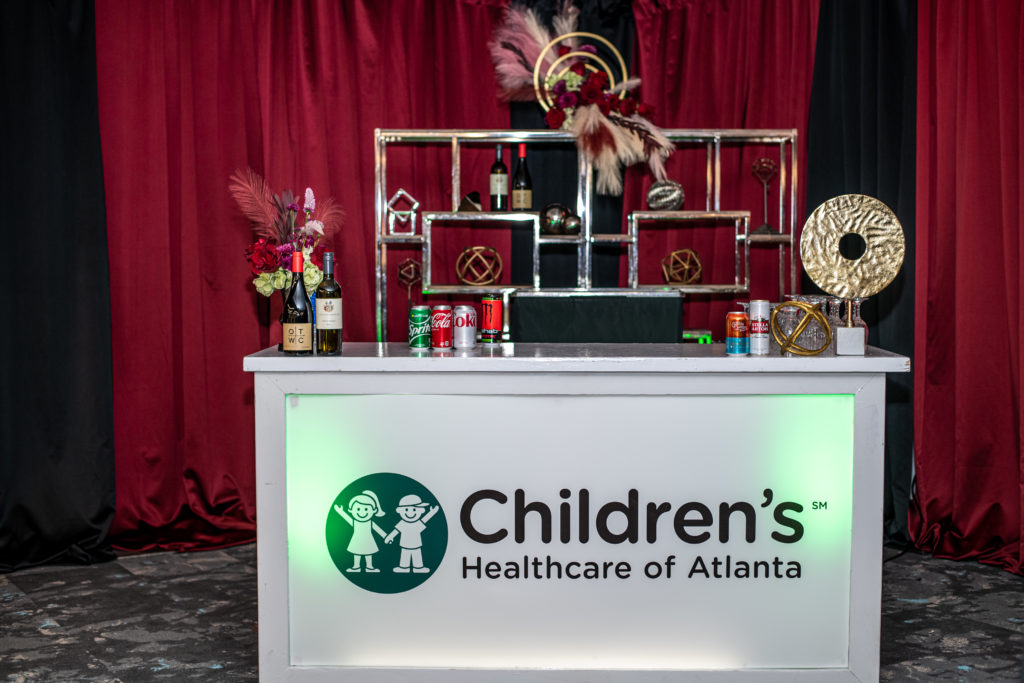
This was an intimate dinner for 50 guests, so we enclosed the space by draping the perimeter in luxe burgundy fabric, in some areas crossed with black accent fabric. Near the modest stage with an unobtrusive acrylic podium, screens displayed sponsor and presentation information throughout the evening.
There were four highboy tables draped in black linens and topped with votives. These were situated near the bar, which was branded with CHOA’s logo and backed by geometric shelves holding bottles and gold and brass décor with floral arrangements displaying more of the feather-like pampas.
For the round dining tables, we maintained this opulent design, topping them with merlot linens to which we added black napkins, golden chargers and golden votives. We chose high-end black Chiavari chairs to complete the luxe look. The centerpieces in traditionally shaped, oil-rubbed bronze miniature vases featured deep red roses paired with white roses and touches of pampas.
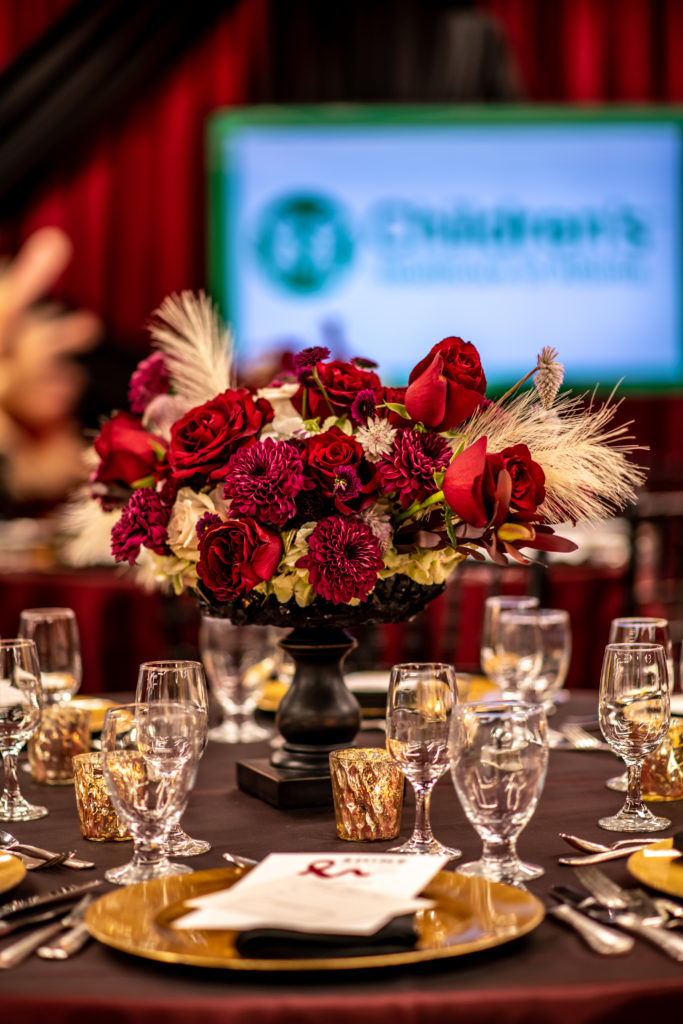

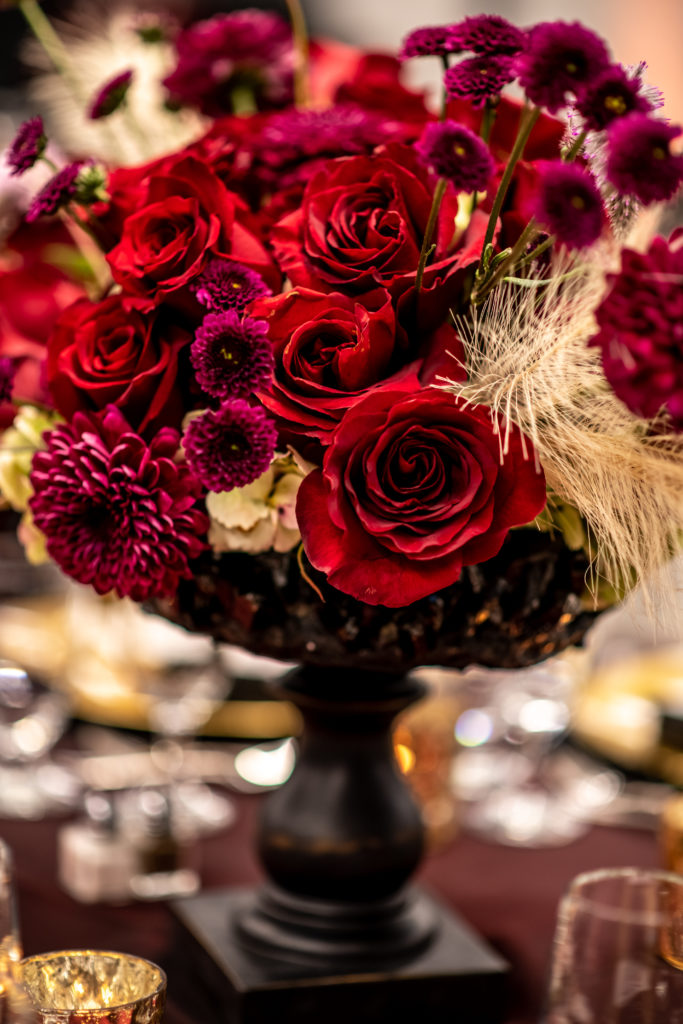
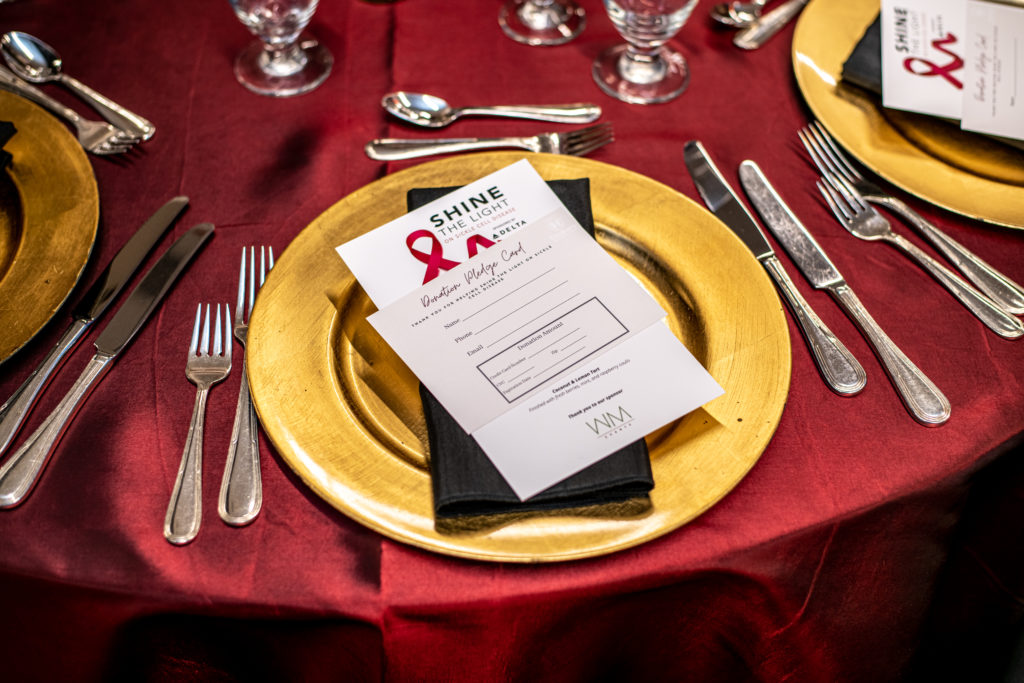
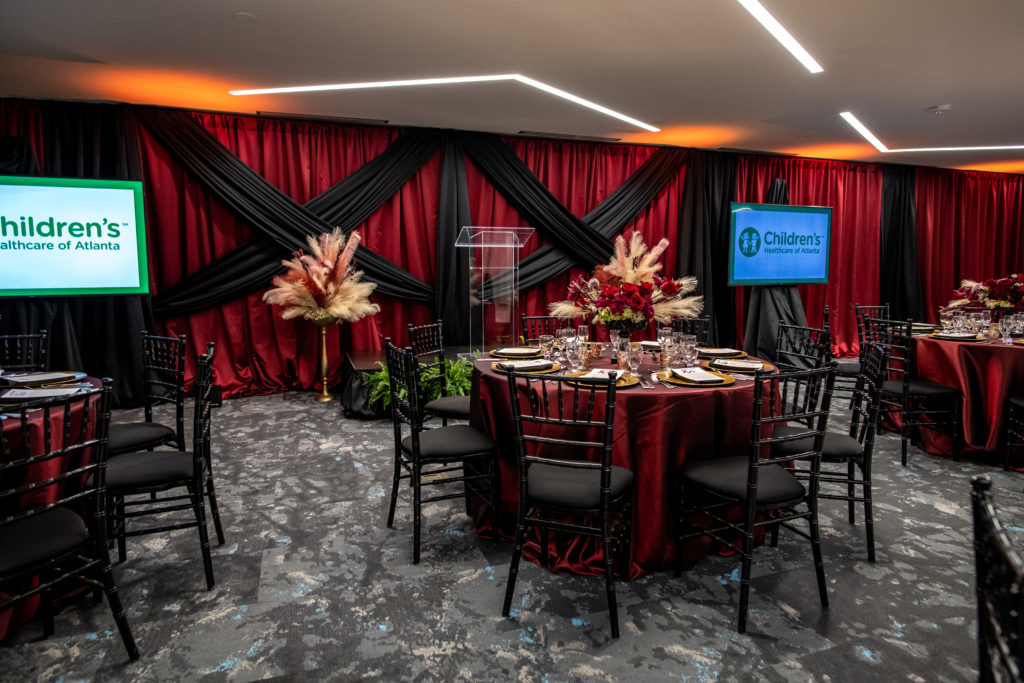
In addition to the deluxe décor, guests enjoyed a cocktail reception with opening remarks from hosts Lovette Russell and Steve Smith, followed by a three-course dinner with a balsamic fig salad, herbed salmon and chevre-stuffed chicken breast, and a coconut & lemon tart with fresh berries.
During the program, they heard from Dan Salinas, MD, Chief of Community Clinical Integration, CHOA, and Jason Payne, MD, MSPH, Clinical Director of the Sickle Cell Disease Program at Hughes Spalding, Aflac Center & Blood Disorder Center, CHOA. And an honorary patient family spoke as well. The evening ended with a call to action that brought a significant level of support for CHOA and the Center. We were honored to have a role in it!
 Click to Call:
Click to Call: 


